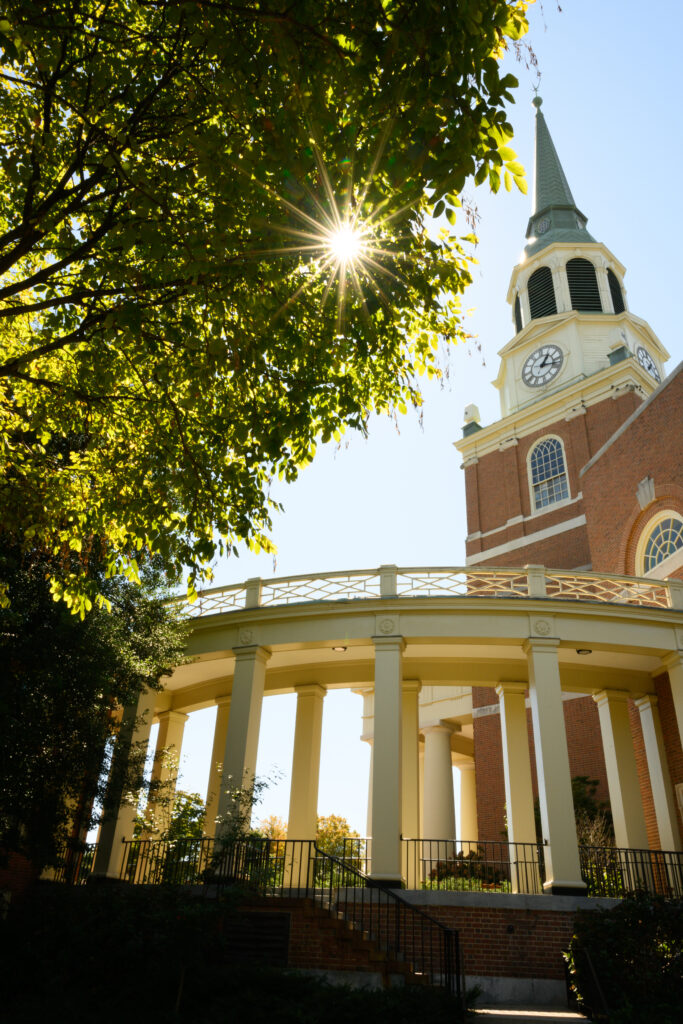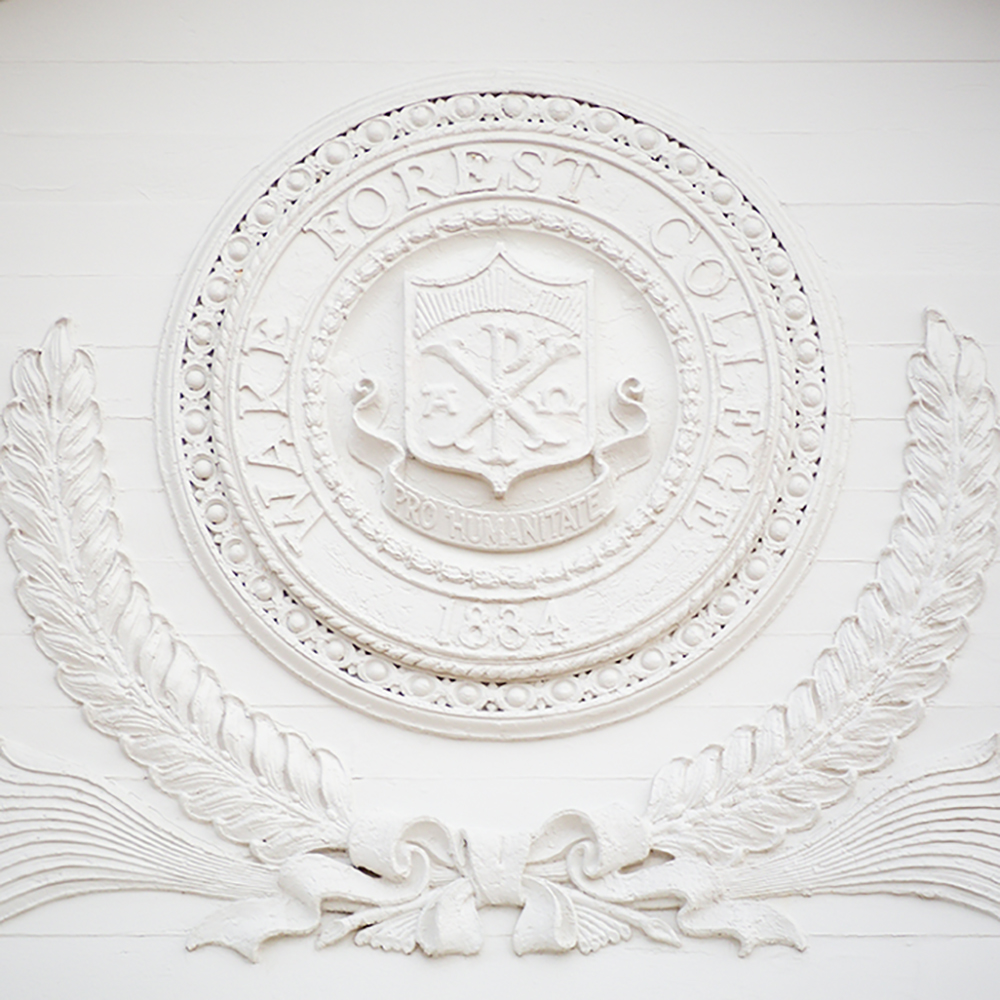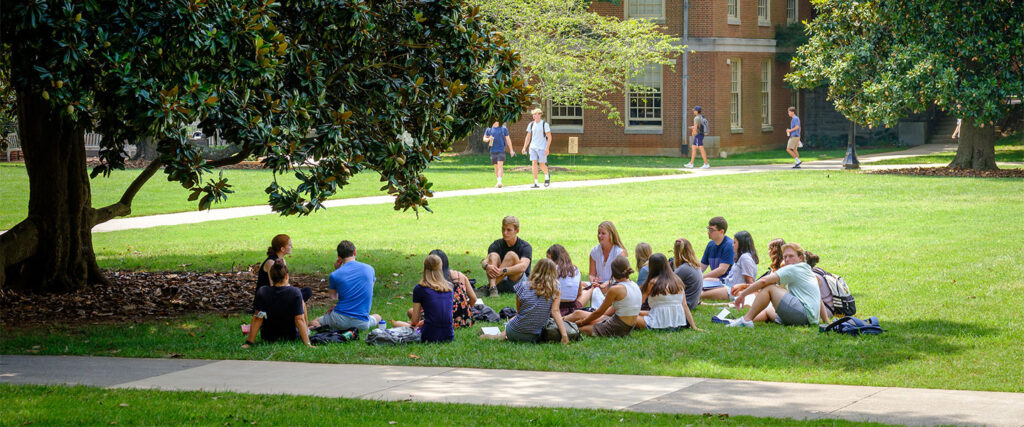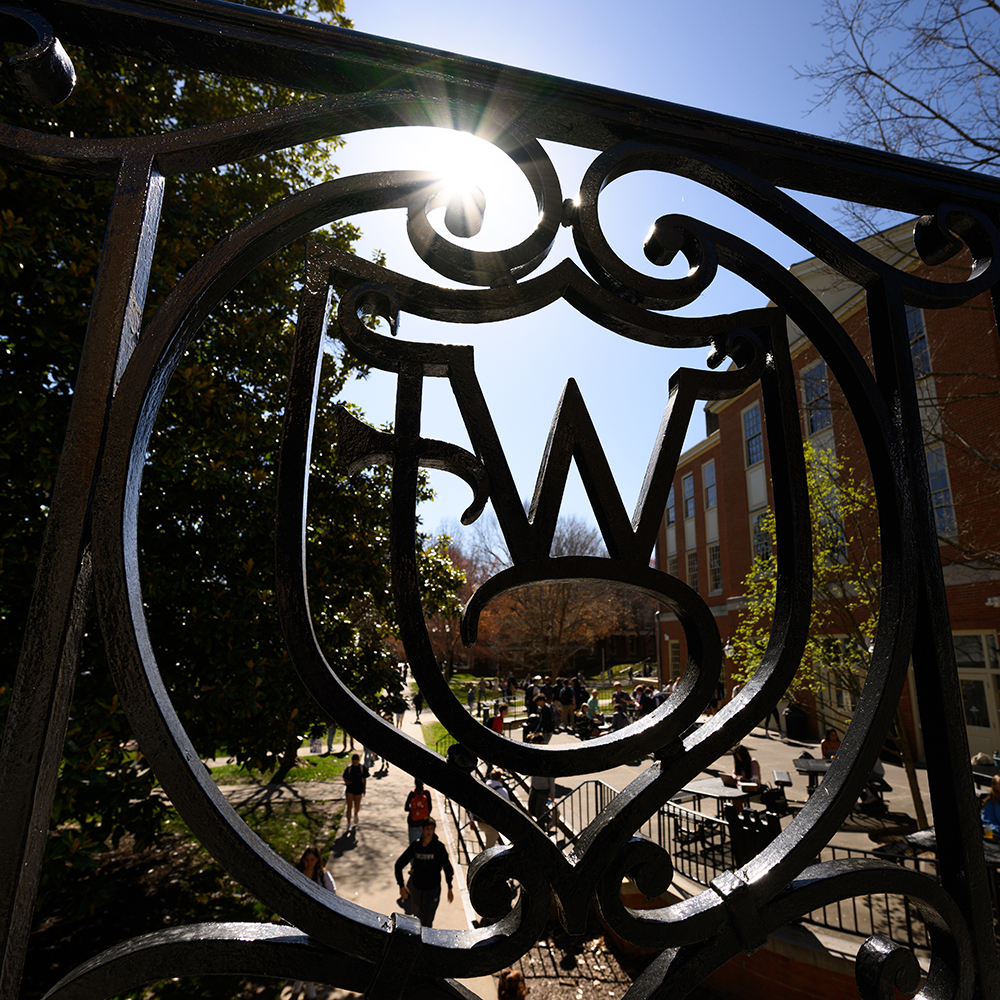Wake Forest and Rankings

Do rankings matter?
What defines Wake Forest?
Students are attracted to Wake Forest’s promise to prepare them to do well in life so that they can do good in the world.
Our approach to developing students to lead with character and integrity rests in our liberal arts roots and faculty engagement. Students love being taught and mentored by faculty at the top of their field who teach and produce research and scholarship with a positive impact on society. Opportunities abound for mentored research, study abroad experiences, experiential learning, and interdisciplinary studies. And students love rallying around their classmates competing for national championships in the ACC.
This unique combination of a personalized academic experience with big-time college sports sets Wake Forest apart from large public universities and private colleges.

Here a few of the measures that matter the most to us:
3 of 5
class sections have fewer than 20 students, and 99% of class sections have fewer than 50 students.
95 %
of full-time faculty have a doctoral or other terminal degree.
97 %
of graduates in recent years were employed or enrolled in graduate programs within 6 months of graduation.
85 %
of the Class of 2025 graduates declared a second major and/or minor.
83 %
of undergraduates have at least one study-abroad experience.
96 %
is the graduation success rate for our athletes, sixth among Power 5 schools.
If you love numbers, then what about rankings?
Traditional Rankings
The rankings landscape has been dominated by the U.S. News & World Report, and yes, Wake Forest touted its top 30 ranking for more than three decades. But in the 2023-2024 assessment of national universities, the ranking criteria broke away from what Wake Forest believes are key factors to educating the whole person.
New Methodology
In 2023-2024, U.S. News & World Report changed 17 of the 19 indicators used to calculate its rankings of institutions in this category — dropping five, adding seven and changing the weight of 10. This included removing foundational elements of Wake Forest’s approach, including class size and faculty with a terminal degree.

Questioning the methodology
A report from NORC at the University of Chicago, a research organization, examined five major rankings, including those from U.S. News and The Wall Street Journal. Among its findings:
- It’s impossible to know exactly what’s being measured because methodologies aren’t clear.
- Data quality isn’t consistent, making it hard to trust assessments of even clearly defined metrics.
- Subjective factors are treated as critical, making it hard to compare different colleges.
Wake Forest is not defined by rankings
Wake Forest believes the purpose of education is to better oneself for the sake of bettering humanity (see ourmottomeansmore.com). This drives a commitment to the liberal arts, to recruiting faculty who engage students in their research and bring their scholarly expertise into the classroom. Since the 2023-2024 edition, U.S. News and World Report rankings have not included indicators that align with our priorities of challenging classes and personal attention and mentoring from professors who are top scholars and experts in their fields.
Wake Forest’s approach to education is in high demand
For the class of 2029, Wake Forest received a record number of applications (nearly 20,000), and the incoming class of first-year students is the largest in our history. Undergraduate applications are up 70 percent over the past five years. The University welcomed our most selective class ever with a 20.8 % acceptance rate.
Wake Forest students are in high demand
Our students consistently secure positions at top organizations and gain acceptance into prestigious graduate schools. Within six months of graduation, 97% of the Class of 2024 were employed or enrolled in graduate programs.
“I think that what happens is that employers themselves and graduate schools don’t really look at rankings because they use their own criteria to measure the quality of the candidates, not based on what some media outlet is telling you is good or not,” said Andy Chan, the vice president of innovation and career development at Wake Forest.
Chan points to a Gallup-Strada survey that showed that about 9 out of 10 employers do not consider college rankings when making hiring decisions.
Recognition of Wake Forest’s academic strength continues to grow
Our commitment to academic excellence produces exceptional outcomes. A few recent highlights:
- Wake Forest is recognized as the national model for leadership and character development education and has received more than $65 million from the Lilly Foundation to help other colleges and universities replicate Wake Forest’s success. Through its Educating Character Initiative, the Program for Leadership and Character has built a community of educators from more than 400 higher education institutions engaged in developing and implementing ideas for integrating character education on their campuses.
- In the past four years, eight Wake Forest faculty have won highly competitive CAREER awards, the National Science Foundation’s most prestigious award for young faculty intended to provide a foundation for a lifetime of scientific leadership that integrates research and education. The awards total more than $4 million.
- Through collaborative research, innovative curriculum development, and new faculty hires, a focus on Neuroscience and Society aims to expand and enhance Wake Forest’s vibrant community dedicated to advancing neuroscience for the benefit of individuals and society.
“Wake Forest has never made decisions or determined University strategy based on chasing rankings such as those from U.S. News. We do not intend to start now. We will remain steadfast in our stated commitments, goals, and vision for the University, and continue striving to provide the best possible educational opportunities. We are committed to providing real data and success metrics to demonstrate the value of a Wake Forest education and its impact on the lives and careers of our students.”
President Susan R. Wente

Transformational Experience
Wake Forest believes the purpose of education is to better oneself for the sake of bettering humanity. This drives a commitment to the liberal arts, to recruiting faculty excited to involve undergraduates in their research and bringing that research into the classroom, and to a University-wide approach to developing leaders of character and integrity. Ask our students, alumni, faculty and staff what Pro Humanitate means to them, and their answer will define Wake Forest
